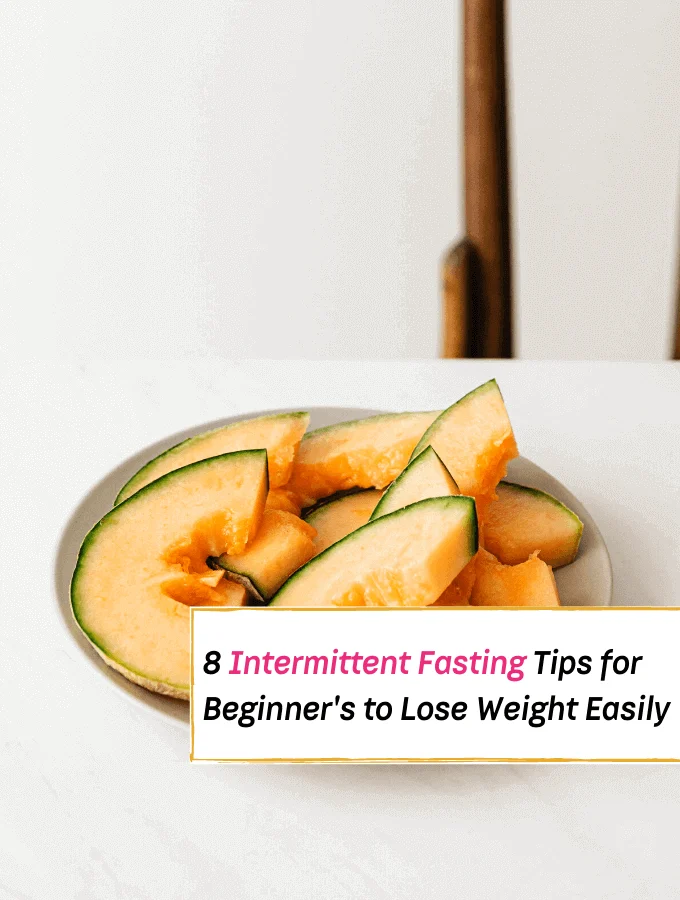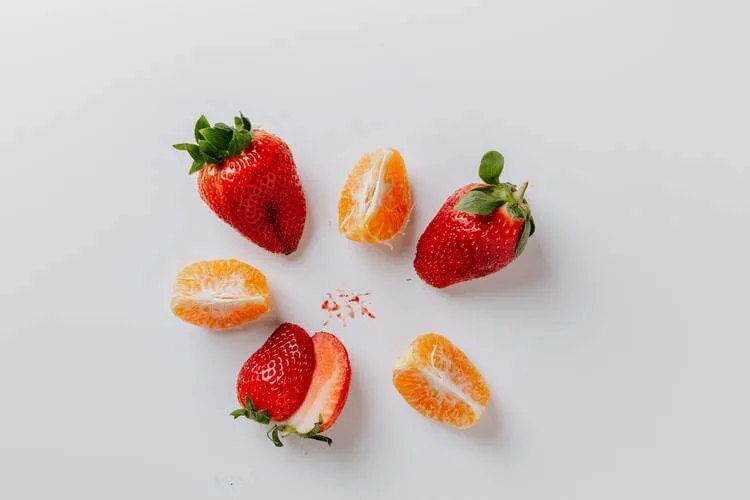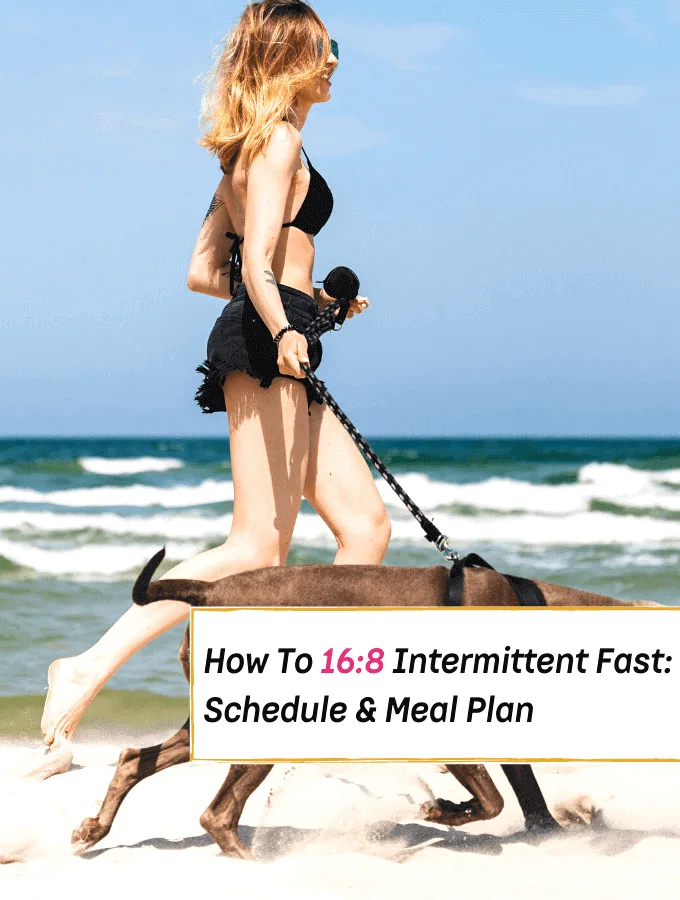If you are looking to learn all about intermittent fasting, this guide will show you how to start a fast and maintain a fast the healthy way!

Have you have heard of intermittent fasting before?
Intermittent fasting or IF is a very buzzy word in the health industry these days and for good reason.
Intermittent fasting usually involves a short-term (or long-term duration depending on your preferences) which requires sustaining from solid foods that last for the better part of the day.
Not only that but fasting can be one of the simplest ways to lose weight but only if you can handle not eating solid foods for a period of time.
If you don’t have a strategy or are not sure what the process involves, you need to be aware that it can slow down your progress towards your health and weight loss goals.
So, if you’re considering this option of losing weight or cleansing/detoxing the body?
Consider following a few of these simple dos and don’ts of how to intermittent fast the right way.
That way you can have a much more enjoyable experience when you fast for the first time!
Similar topics:
- 16:8 Intermittent Fasting: The Best Way To Fast
- 4 Quick and Easy HIIT Workouts for Beginners
- 8 Food Habits That’ll Help You Keep the Weight Off
Intermittent Fasting for Beginners Explained

At the moment right now, Intermittent fasting is gaining a lot of speed due to its health benefits, but to some, it can just seem like another fad diet.
Let’s go over some of the basics and see whether fasting is for you!
A quick briefing on Intermittent Fasting.
Intermittent fasting is more like a pattern of lifestyle rather than a form of diet.
It’s not asking you what to do, but it explains how and when you should eat.
Fasting is not asking you what to do, but explains how and when you should eat.
You basically fast on water in intermittent fasting. You can drink water, but there is nothing you can eat for a certain duration of a fast window that you decide to do (more on that below).
When it comes to having coffee or tea in your fast — you should be safe. As a general rule, if you drink anything with less than 50 calories, your body will keep fasting. Your coffee is just perfect with a splash of milk or cream. Tea should also not be a concern.
Does intermittent fasting work?
In short: All signs point to yes!
Intermittent fasting is a health phenomenon that has had some shaky foundations in the past in the health industry (if not done right), but can also have great results if you’re prepared and have a good plan.
That’s why intermittent fasting is seen as one of the primary health components along with good exercise, plant-based eating, and reduction of stress.
The Benefits of Intermittent Fasting.

There is a whole range of benefits if you are interested in intermittent fasting. Here are a few brief key points when it comes to fasting as a way of dieting…
Research has shown that intermittent fasting can improve:
- Weight loss
- Improve overall health
- Reduce the risk of chronic health conditions
- Improve brain health
- Promotes blood sugar control by deducing insulin resistance
However, fasting is bad for you for long periods of time as your body needs certain vitamins, minerals, and other food nutrients to stay healthy.
Take a look at these four main ways to fast right so you can stay healthy!
The Four main ways to Intermittent fast.
Before picking a fasting routine, always check with your doctor before making any significant changes in your eating and diet.
This is especially crucial if you have a chronic condition or are taking prescription medication.
1. Time-limited.
Choosing a daily mealtime of up to 12 hours. That’s one meal every 12 hours and that’s it.
2. 5:2 diet.
Two days of limited calories of about 500 calories, and a healthy portion calorie intake on the remaining five days.
Normally with the 5:2 diet, in the week, people separate their days of fasting.
For example, they could fast on Tuesday and Thursday and eat normally on the other days. All fasting days should be integrated with 1 non-fasting day in between with this most preferred way of intermittent fasting.
3. Eat-stop-eat-diet.
Better known as the 24-hour fast is a 24-hour complete fast from solid foods 1–2 times per week. That could include fasting from dinner to dinner or breakfast to breakfast, and many people see great benefits in fasting this way.
4. The 16:8 Pattern.
This fasting routine involves only consuming food in an eight-hour window and fasting for 16 hours a day, every day of the week for a given amount of time. If you would like to learn a little bit more about this particular fast, check out 16:8 Intermittent Fasting: The Best Way To Fast here.
Now you can go for as long as you’d like, but it’s not safe to fast for too long, and we’ll address that later in this post.
How do you prepare for an intermittent fast properly?
During a fast, your body will experience a sharp reduction in blood pressure, changes in the electrolyte balance of the body, and decreased insulin levels which means lower blood sugar levels.
When this happens, this could lead to life-threatening conditions if you have a chronic illness and/or are taking medications. So it’s best to consult your practitioner to see if your body can withstand the duration without food.
It’s best to start your intermittent fasting journey by gradually beginning fasting (12+ hours per night), as sleep counts as fasting too!
What can you have during an intermittent fast?
You may have water, tea, and other calorie-free drinks (typically under 50 calories) during your fast but nothing else.
Again that means during the fasting period, people on this diet may have water, tea, and other calorie-free drinks but no solid food.
Steering away from heavy calorie intake during the fast is what fasting is all about.
How much weight can you lose in a month with intermittent fasting?

Weight loss research of alternate-day fasting (5:2 fasting diet) reported that those who fasted for a two to three-month period lost approximately 10 extra pounds.
Now, 5:2 fasting is one of the easiest fasts’ to implement and you should have no problem doing it for a longer period of time.
A study by academic.oup.com has shown that overweight and obese participants had burned more fat with intermittent fasting than they did with working out.
Another study also found that there were even spiritual advantages of fasting. Abstaining from meals gives your digestion a little mini-break and allows the body to start taking fat from its fat reservoirs instead.
In doing so, this helps the body to relax, recover, and detox. Thus, allowing your soul to be cleansed when you take this little hiatus from food.
There are spiritual advantages of fasting. Abstaining from meals gives your digestion a little break and helps the body to relax, recover, and detox.
Can you intermittent fast every day?
It can be repeated as much as you like—from once or twice a week, depending on your personal predisposition, or every day.
In recent years, 16/8 intermittent fasting has gained popularity, especially among those seeking to lose weight and burn fat.
Similar: 8 Healthy Food Habits That’ll Help You Keep the Weight Off
8 Intermittent Fasting Tips for Beginners to Lose Weight

There are many things that you can do that will help you on your journey to being an intermittent fasting pro. Here are 8 good ways to start intermittent fasting the right way!
1. Pick a fast that you’ll succeed at.
Fasting spontaneously without a strategy or not comprehending the process will not help you reach your goals. That’s why the four recommended fasts listed above are great for beginners wanting to see the best health benefits of IF.
2. Eat Soluble Fiber and keep to a nutritious diet.
On non-fast days, follow a healthy diet and try to eat healthy foods that are high in fiber.
Most beginners think that they can eat whatever they want on non-fast days and that will only hinder the process of what IF is all about, which is clearing your digestion so you can reach ketosis and ultimately burn more fat.
3. Don’t start with a seven-day fast if you’ve never fasted before.
A seven-day fast is not your standard beginner intermittent fasting routine. Your body will go into shock if it’s not used to it so the best approach is to ease into it.
If you are a beginner, pick either a time-limited IF, choosing a daily mealtime of up to 12 hours, the 5:2 diet which restricts your calorie intake for two days per week (500 calories per day), or the eat-stop-eat-diet an intermittent fast program with one or two 24-hour fasts per week.
Experts suggest taking it slow and see how your body adapts to this new way of eating.
4. Eat dinner early & fast in the evenings.
One of the most popular tips and DO’s for fasting right is to start fasting in the evenings by pushing back your dinner time.
Basically plan to eat in the middle of your day for most of your meals and see how your evenings feel.
Fasting in the evening than eating early or in the middle of the day is the pattern that has the most profound benefits for beginners.
Experts say that this is the fastest way to ease into it before you go full-on into wider fasting windows.
5. Include the period of sleep in your fasting window.
If you are just starting intermittent fasting for the first time, experts say to choose the most realistic 8-12-hour time period to start. The best approach would be to include the period of sleep also in your fasting window.
That way you can adjust accordingly and allow your body the time to recognize what it’s like to abstain from food before heading into a longer fast.
6. Stop eating 2 to 3 hours before bedtime.
If you can’t fast for the whole evening, your next main motive should be to stop eating after 9 p.m. or at the very least two hours before bedtime.
Usually, with any fast that you introduce to your diet, sticking to this strict nighttime rule will help you better maintain your fasting times much more rigorously throughout the coming days.
7. When intermittent fasting hydration is key.
Drinking lots of fluids will help ease your hunger and give your body the cleanse it deserves when it’s going through the fasting period for the first time.
Remember, you’re just fasting from food! So staying hydrated while fasting is very necessary.
During fasting, your body switches to ketosis, so you can burn more fat.
Simultaneously, water will boost the rebuilding process of your body during ketosis supporting the health of your nervous system overall.
8. Consult your doctor if fasting longer than 36 hours.
If you really want to push yourself and fast for longer periods of time?
Learn to fast safely and check with your primary care doctor first.
Never start continuous fasting or fasting in excess of 36 hours if you have no medical reason to do so and have not consulted with your practitioner.
After all, it’s really up to you, but just be very mindful of your health when trying these sorts of diets out.
Intermittent fasting isn’t for everyone and it’s not something that must be done.
It’s just another method that can be useful if you are looking for different ways to cleanse your body and lose weight.
Follow these guidelines above and you’ll experience a fresh new way of eating and losing weight!
See Also:

Check out, 16:8 Intermittent Fasting: A Schedule & Meal Plan, next!
More from Everything Abode:
- How to Set Intentions for the Day – 10 Easy Steps
- 10 Approved Lazy Girl Fitness Hacks to Exercise Easily
- 4 Quick and Easy HIIT Workouts for Beginners
- 9 Powerful Self Care Ideas to Treat Burnout
- 8 Food Habits That’ll Help You Keep the Weight Off
Author: Everything Abode
Welcome to Everything Abode, your daily inspiration for every activity at home!
Our goal is to inspire you to live an elegant and chic lifestyle from the comfort of your home.
We’ll help you express yourself through authentic style, aesthetic beauty, and stylish home decor.
Subscribe to Get the Tools That Make My Blog Successful!

When you join my newsletter, I'm going to send you insider advice and tools that I use to grow my blog! I only save the BEST for my email list so don't wait!
